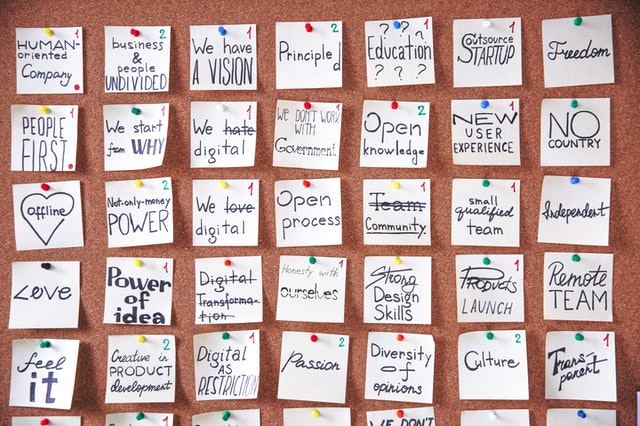Check out our valuable collection of tips and insights. If you want the latest career advice, study tips and news, you’ll find it all right here.
Read blogs by topics
All blogs

Expert Tips to Succeed in Work Placement
March 20, 2024

Five Quick Tips for Requesting a Reference Letter
March 16th, 2023

5 Soft Skills you need to accelerate your career
February 19th, 2023

5 tips on how to balance studying while working full-time
January 24th, 2023

The Top Five Careers with the Happiest Workers
December 11th, 2022

The Five Best Careers for People with Anxiety
November 29th, 2022

Five Careers with six figure salaries that don’t require a degree
November 06th, 2022

Tips for successfully managing remote teams online
October 26th, 2022

10 Tips to Combat the Cost of Living
October 11th, 2022

10 Best Leadership Podcasts to get you Inspired
September 19th, 2022

Open Colleges Opens Up this R U Okay Day
September 06th, 2022

A Day in the Life of a Vet Nurse!
August 17th, 2022

Our Best Ever Study Playlist
August 03rd, 2022

A Day in the Life of a Dog Groomer!
August 01st, 2022

What are the Five Levels of Leadership?
July 21,st 2022

Improve your leadership skills with our new courses!
June 20th, 2022

Skill Sets: What are they? And what can they do for you?
June 08th, 2022

The best 5 apps for studying
April 10th, 2022

5 tips for a healthy work-life balance
April 04th, 2022

How to develop an exciting career in Photography
March 20th, 2022

Confidence Training – Seven quick ways to appear confident at work
February 15th, 2022

Confidence Training – Seven quick ways to appear confident at work
February 15th, 2022

Simple Productivity Tips from Highly Successful People
January 24th, 2022

What are the different sectors in the Construction Industry in Australia?
December 17th, 2021

The 5 best careers working with children
November 05th, 2021

Why is it important to have a meaningful job?
September 27th, 2021

Healthcare service courses that add value to your career
September 24th, 2021

Instagram marketing trends you need to pay attention to
September 19th, 2021

What’s the difference between a Counsellor and a Psychologist?
August 27th, 2021

How to build rapport with new counselling clients
August 25th, 2021

Spotlight on essential leadership competencies
August 11th, 2021

Top 5 skills of an effective Counsellor
July 28th, 2021

What are the different types of Accountants?
July 23rd, 2021

How to stay focused while studying
June 29th, 2021

The best side hustle ideas for Designers
May 7th, 2021

10 Tips for Effective Communication, Online and Offline
May 2nd, 2021

The top 10 benefits of studying accounting
April 29th, 2021

How to write a resume
April 20th, 2021

How to get the most out of Xero: a beginner’s guide
April 15th, 2021

How to Staff Your Courses for Inclusive Teaching
April 6th, 2021

Women In Data Science: Who’s Leading the Way?
April 6th, 2021

Top 7 business administration skills you need to make employers notice you
March 31st, 2021

How to write a great cover letter
March 29th, 2021

What is the difference between cash and accrual accounting?
March 11th, 2021

The best reasons to study human resource management
February 26th, 2021

Skills needed to be a Youth Worker
February 18th, 2021

Working As a Drug and Alcohol Counsellor
February 9th, 2021

What’s the difference between diplomas and certificates?
January 30th, 2021
Displaying page 1 of 6

